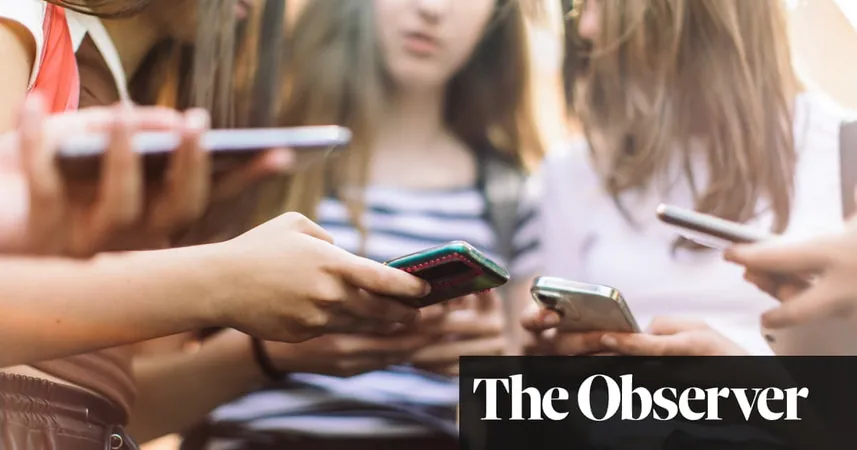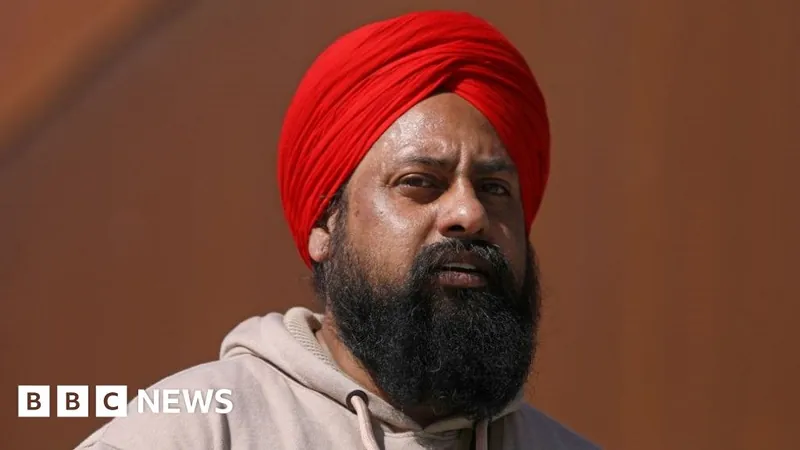
Alarming Study Reveals Instagram's Role in Perpetuating Self-Harm Among Teens
2024-11-30
Author: William
A shocking new study has found that Instagram, owned by Meta, is inadvertently supporting the spread of self-harm content among teenagers by failing to adequately remove explicit images and facilitate connections between users who engage with this troubling material. Researchers from Denmark exposed critical flaws in Instagram's moderation system, deeming it "extremely inadequate."
The Danish team conducted an experiment by creating a private network focused on self-harm, utilizing fake profiles of users as young as 13. Over the course of a month, they shared a staggering 85 pieces of self-harm-related content that increased in severity, showcasing images of blood, razors, and even messages that encouraged self-injury. The objective was to evaluate Meta's claims regarding the effectiveness of its content moderation, particularly its use of artificial intelligence (AI) to identify and remove harmful material.
Meta asserts that its system can efficiently remove around 99% of harmful content proactively. However, the Digital Accountability organization found that not a single image from their study was flagged or taken down. When the organization deployed its own AI tool to analyze the images, it successfully recognized 38% of the self-harm images and 88% of the most graphic content, indicating that Instagram has the technology to tackle this crisis but is not employing it effectively.
This negligence may place Instagram at odds with the European Union's Digital Services Act, which mandates that major digital platforms identify and mitigate systemic risks to users' mental and physical health. In response to the study, a Meta spokesperson maintained that the company actively removes content that promotes self-injury, claiming they had taken down over 12 million pieces related to suicide and self-harm in the first half of 2024.
However, the Danish study contradicts these claims, suggesting that rather than curbing the spread of self-harm content, Instagram’s algorithm enables it. The findings indicated that young users could easily form connections with members of the self-harm network, suggesting a disturbing trend where algorithmic recommendations facilitate harmful friendships instead of deterring them.
Ask Hesby Holm, CEO of Digitalt Ansvar, expressed his dismay over the study's results, highlighting the serious implications of failing to monitor such content appropriately. The lack of intervention can lead to tragic outcomes, including increased instances of suicide among vulnerable users. Holm speculated that Meta may not moderate smaller private groups diligently, potentially to sustain high levels of user engagement and interaction.
Adding to the concerns, Lotte Rubæk, a psychologist and former member of Meta’s suicide prevention group, echoed the study’s findings. She was astonished by Instagram’s inability to remove any of the identified explicit images, dispelling the company’s claims of constant technological improvement. The presence of self-harm content online is not just an issue of community health, but in her view, can indeed be a matter of life and death for young adults navigating their mental health in a digital landscape.
As we continue to witness the profound effects of social media on mental health, it becomes increasingly critical for platforms like Instagram to prioritize user safety and take meaningful action to protect vulnerable youth from harm. With organizations and experts raising alarms, the call for stricter regulations and responsible content moderation has never been more urgent.
If you or someone you know is struggling, support is available. In the UK, reach out to Mind at 0300 123 3393 or Childline at 0800 1111; in the US, contact Mental Health America at 988; in Australia, support is available through Beyond Blue at 1300 22 4636 or Lifeline at 13 11 14. Don't hesitate—help is just a call away.









 Brasil (PT)
Brasil (PT)
 Canada (EN)
Canada (EN)
 Chile (ES)
Chile (ES)
 España (ES)
España (ES)
 France (FR)
France (FR)
 Hong Kong (EN)
Hong Kong (EN)
 Italia (IT)
Italia (IT)
 日本 (JA)
日本 (JA)
 Magyarország (HU)
Magyarország (HU)
 Norge (NO)
Norge (NO)
 Polska (PL)
Polska (PL)
 Schweiz (DE)
Schweiz (DE)
 Singapore (EN)
Singapore (EN)
 Sverige (SV)
Sverige (SV)
 Suomi (FI)
Suomi (FI)
 Türkiye (TR)
Türkiye (TR)